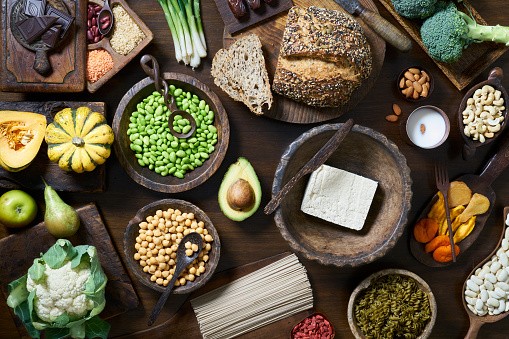Protein is one of the most important building blocks the body needs to build and repair tissues. A recent report shows how switching from meat to plant protein leads to a longer life.
As a macronutrient, proteins have an important role in repairing and making cells, producing hormones and chemicals for everyday function, as well as protecting the body from bacteria and viruses. A new study published in the Journal of the American Medical Association takes a look at the advantages of consuming plant protein as an alternative to meat.

Overall, plant protein reduces the risk of early death, said the research team. Every 3% of plant protein as the source of daily energy reduces the risk of premature death by 10%.
The study consisted of 237,036 men and 179, 068 women in the span of 16 years with 78,000 deaths. Greater intake of protein from plants, noted the researchers, was directly associated with longevity and cardiovascular disease mortality in comparison to meat.
Switching to Plant Protein
In particular, when people switched eggs with plant protein such as tofu or beans, there was a 21% lower risk of premature death in women and a 24% lower risk in men. When plant alternatives replaced red meat, it resulted in a 15% lower risk in women and 13% in men.
Jiagi Huang from the U.S. National Cancer Institute explained that removing red meat from one's diet is only beneficial if it is replaced by a healthy alternative. 'For example, replacement of 3% energy from egg protein or red meat protein with plant protein such as whole grains or cereals resulted in a protective association for overall mortality,' he said. 'On the other hand, replacement of 3% energy from egg protein or red meat protein with other foods such as sugar-sweetened beverages may or may not result in a reduction in mortality.'
In the cohort of over 400,000 people, the team reviewed their health and eating patterns from 1995 to 2011. Their typical diet consisted of 15% protein - 60% meat and 40% plant protein.
In the years of follow up, it was clear that plant protein intake was the reason some individuals avoided premature death. For every 10 grams of plant protein replacing meat per 1,000 calories, the risk of death for men was reduced by 12% then 14% for women.
Dr. Demetrius Albanes, also from the U.S. National Cancer Institute, said, 'our data provide evidence to support the favorable role for plant-based diets in the prevention of cardiovascular disease mortality, and that modifications in choices of protein sources may influence health outcomes and longevity.' There are also other reasons why plant protein is beneficial and will help with longevity, the team said.
Read Also: America Versus England - Who is Healthier?
Disadvantage of Meat
A disadvantage of meat protein is that it has higher levels of cholesterol, sodium, saturated fat, and other nutrients that harm the health shared Connie Diekman from the Academy of Nutrition and Dietetics. 'For example, one ounce of red meat mixed with whole wheat pasta and veggies would provide much less saturated fat than a 9-ounce steak,' she said. Kayla Jaeckel from the Mount Sinai Health System in New York City shared that on the contrary, plant protein contains fiber, antioxidants, vitamins, and minerals.
'This provides a glimpse at diet intake but doesn't show patterns, and patterns are key," said Diekman. She explains that eggs with brown rice and vegetables have a completely different nutrient intake compared to eggs with bacon, biscuits, and gravy.
'My take on the study, and what I would tell clients, is that evidence continues to grow to support the importance of consuming more plant foods and less animal foods, while also boosting vegetable, whole grain, and fruit intake,' she continued. She said that meat dishes can be enjoyed but not necessarily consumed daily and that it is important to have a diet balanced with a lot of plant foods.
Read Also: Prevent Type 2 Diabetes: Studies Reveal The Perfect Diet of Fruits, Vegetables, and Whole Grain
© 2026 ScienceTimes.com All rights reserved. Do not reproduce without permission. The window to the world of Science Times.












